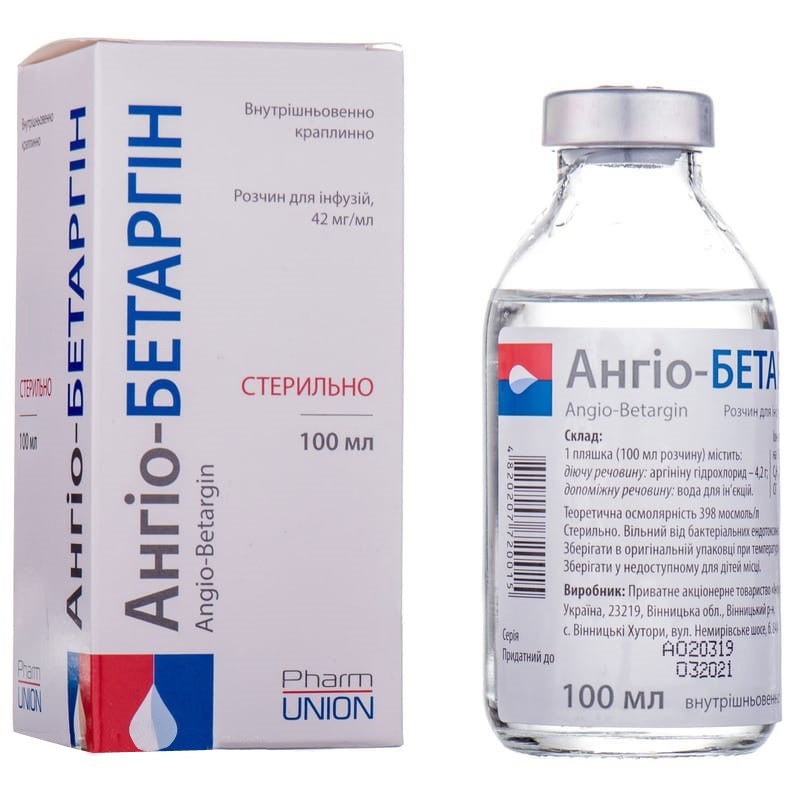



 Secure and encrypted payment processing
Secure and encrypted payment processing We ship to over 40 countries including the USA, UK, Europe, Australia and Japan
We ship to over 40 countries including the USA, UK, Europe, Australia and Japan Guaranteed refund or reship if you haven't received your order
Guaranteed refund or reship if you haven't received your orderarginine (α-amino-δ-guanidinovalerianic acid) - an amino acid that belongs to the class of conditionally essential amino acids and is an active and versatile cellular regulator of numerous vital functions of the body, exhibits protective effects that are important in critical conditions of the body.
Arginine has antihypoxic, membrane stabilizing, cytoprotective, antioxidant, antiradical, detoxification activity, is an active regulator of intermediate metabolism and energy supply processes, plays a role in maintaining hormonal balance in the body. It is known that arginine increases the content of insulin, glucagon, growth hormone and prolactin in the blood, takes part in the synthesis of proline, polyamine, agmatine, participates in the processes of fibrinolysis, spermatogenesis, and has a membrane-depolarizing effect.
Arginine is one of the main substrates in the urea synthesis cycle in the liver. The hypoammonia effect of the drug is provided by activating the conversion of ammonia to urea. It has a hepatoprotective effect due to antioxidant, antihypoxic and membrane stabilizing activity, positively affects the energy supply processes in hepatocytes.
Arginine is a substrate for NO synthase, an enzyme that catalyzes the synthesis of nitric oxide in endotheliocytes. The drug activates guanylate cyclase and increases the level of cGMP in the vascular endothelium, reduces the activation and adhesion of leukocytes and platelets to the vascular endothelium, inhibits the synthesis of adhesion proteins VCAM-1 and MCR-1, preventing the formation and growth of atherosclerotic plaques, which inhibits endothelin synthesis vasoconstrictor and stimulator of proliferation and migration of smooth myocytes of the vascular wall. Arginine also inhibits the synthesis of asymmetric dimethylarginine - a powerful endogenous stimulator of oxidative stress. The drug stimulates the activity of the thymus gland producing T cells, regulates the level of glucose in the blood during exercise. It has an acid-forming effect and contributes to the correction of acid-base balance.
Pharmacokinetics With continuous iv infusion Cmax arginine hydrochloride in plasma is observed 20-30 minutes after administration. Arginine crosses the placental barrier, is filtered in the renal glomeruli, but is almost completely reabsorbed in the renal tubules.
Atherosclerosis of the vessels of the heart and brain, atherosclerosis of the peripheral vessels, including with manifestations of intermittent claudication, diabetic angiopathy, coronary heart disease, ag, conditions after acute myocardial infarction and acute cerebrovascular accident, myocardiopathy, chronic heart failure, hypercholesterolemia, cholesterol choleraemia, interstitial pneumonia, idiopathic pulmonary hypertension, chronic postembolic pulmonary hypertension, acute and chronic hepatitis of various etiologies, g perammoniemiya, hypoxic conditions, asthenic states in the process of recovery, including infectious diseases and after surgical intervention, metabolic alkalosis, reduced thymus gland, fetal growth retardation and preeclampsia.
The drug is administered iv drip at a rate of 10 drops per minute for the first 10-15 minutes, then the rate of administration can be increased to 30 drops per minute.
The daily dose of the drug is 100 ml of solution.
With severe circulatory disorders in the central and peripheral vessels, with severe signs of intoxication, hypoxia, asthenic conditions, the dose of the drug can be increased to 200 ml / day.
The maximum rate of introduction of the infusion solution should not exceed 20 mmol / h.
For children under the age of 12 years, the dose of the drug is 5-10 ml per 1 kg of body weight per day. For the treatment of metabolic alkalosis, the dose can be calculated as follows:
| arginine hydrochloride (mmol) | • 0.3 • kg body weight. |
| excess alkali (Be) (mmol / l) |
The introduction should begin with half the calculated dose. A possible additional correction should be carried out after obtaining the results of the updated acid-base balance.
Hypersensitivity to the components of the drug. severe renal impairment, hyperchloremic acidosis; a history of allergic reactions; the use of potassium-sparing diuretics, as well as spironolactone.
General disorders: hyperthermia, sensation of heat, body aches.
From the musculoskeletal system: joint pain.
From the digestive tract: dry mouth, nausea, vomiting.
On the part of the skin and subcutaneous tissue: changes at the injection site, including hyperemia, itching, pale skin, up to acrocyanosis.
From the immune system: hypersensitivity reactions, including rash, urticaria, angioedema.
From the cardiovascular system: fluctuations in blood pressure, changes in heart rate, pain in the heart.
From the nervous system: headache, dizziness, a feeling of fear, weakness, cramps, tremors, more often when the rate of administration is exceeded.
Changes in laboratory parameters: hyperkalemia.
In patients with renal failure, before starting the infusion, it is necessary to check the diuresis and potassium level in the blood plasma, since the drug can lead to the development of hyperkalemia. angio-betargin should be used with caution in case of endocrine gland dysfunction. this medicine can stimulate the secretion of insulin and growth hormone.
If you experience dry mouth, check your blood glucose level.
Caution should be used in violation of electrolyte metabolism, kidney disease. If the severity of asthenia symptoms increases while taking this medication, treatment should be canceled.
Application in